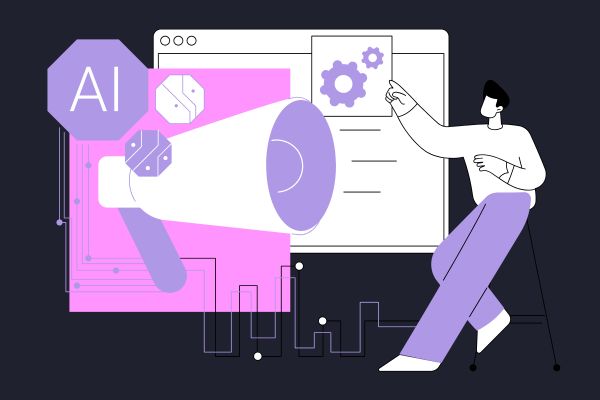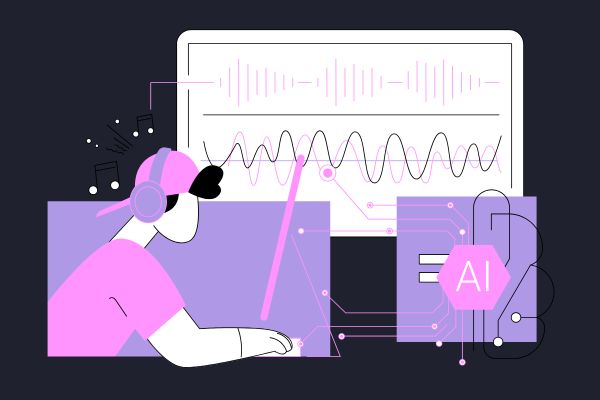Last Updated on September 11, 2025 by Becky Halls
Introduction: From SERPs to Citations
For years, SEOs obsessed over blue links and rankings. But in 2025, visibility isn’t just about whether you’re in Google’s top 10 – it’s about whether AI systems are mentioning you so we are here to explain how to track AI mentions and optimize your content for success!
ChatGPT, Gemini, Claude, Perplexity, and Google’s AI Overviews aren’t just shaping the future of search, they’re shaping which brands get discovered, trusted, and clicked. If your content isn’t being cited by these models, you’re invisible to millions of search journeys that never touch a traditional SERP.
This guide breaks down how to track your AI mentions, why they matter, and how to turn them into traffic, backlinks, and brand authority.
What Are AI Mentions?
AI mentions happen when a large language model (LLM) like ChatGPT or Gemini references your brand, domain, or content in its generated answers.
Think of them as the modern version of press coverage. Instead of a journalist quoting you in an article, an AI quotes you in an answer. The difference? That AI answer might be read by thousands of users a day.
Types of AI mentions:
-
Direct brand mentions (e.g., “According to 3way.Social…”)
-
Linked citations (clickable URLs in AI Overviews or Perplexity)
-
Entity recognition (your site being referenced as an authority, even without a link)
-
Implied citations (AI summarizes your content without explicit credit… controversial, but real)
Why AI Mentions Are the New SEO Battleground
-
Traffic Shift: Studies show 41% of users click fewer organic results since AI snippets became mainstream. If you’re not mentioned in AI responses, you lose traffic.
-
Authority Signals: AI models pull from trusted, topically authoritative sources. If you’re mentioned, it means you’re already being seen as credible.
-
Brand Visibility: Unlike backlinks, AI mentions aren’t just about rankings – they’re about reputation. Users trust content that AI trusts.
-
Competitive Edge: Early adopters of AI mention tracking will own the space while others scramble.
How to Track AI Mentions in 2025
Unfortunately, there’s no single “Google Search Console for AI.” But you can cobble together a toolkit that guides you through how to track AI mentions by following our steps below…
1. Manual Spot-Checks
-
Run queries in ChatGPT, Gemini, Claude, and Perplexity related to your niche.
-
Check if your brand, articles, or competitors are cited.
-
Keep a spreadsheet and document where links appear (or don’t).
2. Perplexity Pro
Perplexity is the most transparent LLM as it gives clear citations. Sign up for Pro, run industry queries, and see which sources are cited most.
3. Browser Extensions & Scrapers
Some SEOs are using Puppeteer or Selenium bots to:
-
Run hundreds of LLM queries.
-
Capture screenshots and citations.
-
Map which sites dominate AI Overviews.
4. Custom Alerts
Use tools like Mention, Brand24, or Talkwalker combined with “ChatGPT” or “Gemini” to catch public mentions of your brand being cited in AI discussions.
5. GEO Tools (Emerging)
Generative Engine Optimization platforms are popping up (yes, including 3way.Social integrations) to track:
-
Which of your pages get cited in AI.
-
How often.
-
Whether citations are linked or unlinked.
Turning AI Mentions into Backlink Opportunities
Here’s where it gets powerful. AI mentions aren’t just vanity – they can also be leverage for backlinks.
-
Outreach on Implied Mentions
If an AI references your content but doesn’t cite you, contact site owners of related sources:
“Hey, we noticed our research is powering AI responses but wasn’t linked in your article. Would you consider adding a reference?”
-
HARO 2.0
Help a Reporter Out (HARO) is fading, but AI is the new “reporter.” Position your site with fresh stats, case studies, and whitepapers so AI naturally cites you. -
Competitor Citations
Track which sites AIs are citing. That’s your new backlink prospect list. If Gemini trusts them, you want a link from them. -
LLM-Specific Content
Create pages tailored to be LLM-friendly:
-
FAQs
-
Numbered lists
-
Schema markup
-
“Best of” resources
These formats are more likely to get quoted by AI systems.
Stats That Prove AI Mentions Matter
-
81% of AI Overviews cite at least one result from Google’s top 10 (Writesonic study, 2025).
-
Ranking #1 gives you a 33% chance of being cited in AI Overviews.
-
92% of Gemini answers provide no clickable citation – highlighting the risk of being uncredited (arXiv, 2025).
-
86.5% of top-ranking content is partially AI-created, proving freshness and optimization matter (Ahrefs, 2025).
Our Expert Advice on How to Track AI Mentions
“AI isn’t stealing your traffic but is instead reshaping the playing field. The brands that adapt now will own tomorrow’s citations.” — Becky Halls, Strategist at 3Way.Social
“If you’re not watching AI mentions, you’re flying blind. They’re an important addition to backlinks. They influence not just rankings, but reputation.” — Ian Naylor, Founder of 3way.Social
Our Action Plan: How to Optimize for More AI Mentions
-
Audit Existing Mentions: Run checks in major LLMs. Build a baseline.
-
Target Topical Authority: Publish clusters that dominate your niche.
-
Structured Content: Write in formats AI loves—FAQs, lists, definitions.
-
Use GEO Signals: Add schema, structured data, and even an
llms.txtfile. -
Build Authoritativeness: Get links from domains already cited in AI answers.
-
Refresh Often: Update stats, publish new research, and keep content fresh.
-
Track Progress: Set up scraping dashboards to measure mentions over time.
Case Study: A Hypothetical 3way.Social User
-
Starting point: 120 backlinks, DA 35, low AI mentions.
-
Action taken: Published topical map with 15 new cluster articles, added schema, pitched research to industry sites.
-
Result after 90 days:
-
Featured in 2 Gemini Overviews.
-
4 new high-DA backlinks acquired via AI-inspired outreach.
-
38% uplift in referral traffic from cited sources.
-
FAQ: AI Mentions & SEO
Q1. Are AI mentions the same as backlinks?
Not exactly. They’re citations or references in AI answers. Sometimes they’re clickable, often they’re not. But they still drive authority.
Q2. Do AI mentions improve Google rankings?
Indirectly, yes. If AI trusts you, chances are you’re ranking well. Plus, more visibility means more links.
Q3. Can I force AI to mention me?
No, but you can format content so it’s more likely to be cited: structured answers, authority pages, and fresh data.
Q4. What’s the future of AI mentions?
Expect better transparency. Users are already demanding clickable, reliable citations. Google and OpenAI will be forced to improve attribution.
Conclusion: Mentions Are the New Links
SEO is no longer just about keywords – it’s about outcomes. Being cited by AI is the new “page one.” If you’re invisible in AI answers, you’re invisible to a growing percentage of users.
The takeaway? Track your mentions, optimize for citations, and use platforms like 3way.Social to turn AI recognition into real backlinks, real authority, and real growth.





